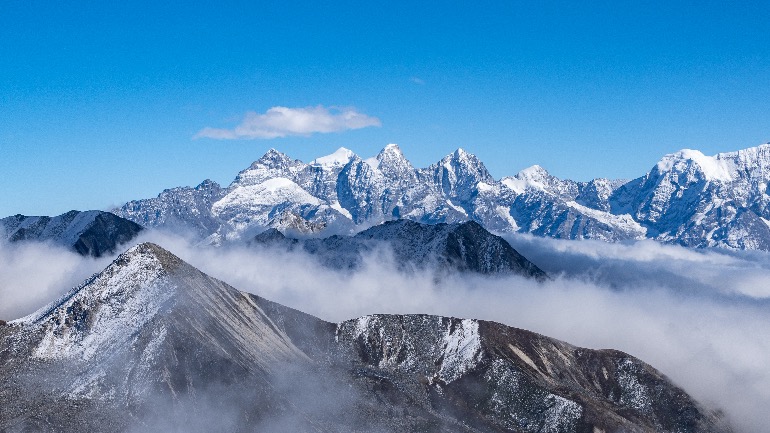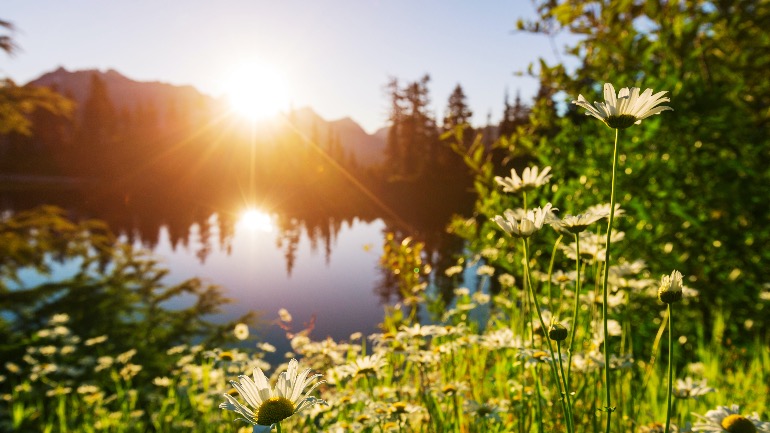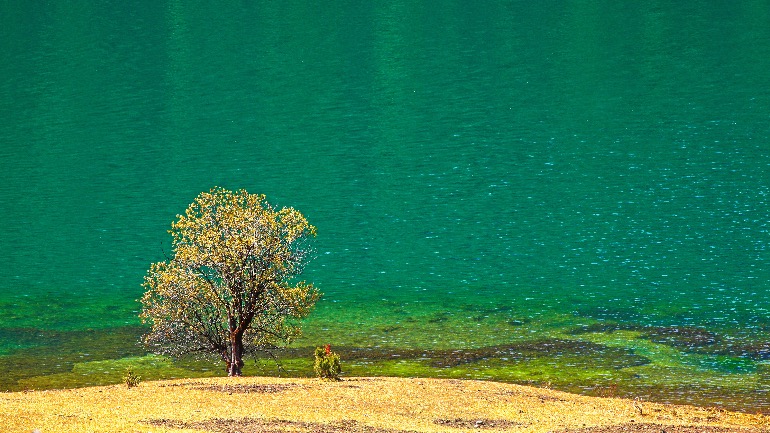Genuine bodhicitta of a bodhisattva refers to the aspiration to give others whatever is needed unselfishly and unconditionally, which in hard times is a particularly difficult thing to do.
KHENPO'S BLOG
If our realization is not stable, our mind will return to mundane concerns and experience anxiety and suffering again. Until we have subdued the mind, it will traverse back and forth between illusion and reality, between relative truth and ultimate truth.
If we wish to eradicate our suffering immediately, we must practice the preliminaries. We cannot bypass the preliminaries and think we can take up a different practice to achieve the same result.
- Quote from Are You Ready For Happiness? Don't Let the Paper Tiger Scare You Off, "How to Face Suffering"
The Buddha once said, “I do not argue with worldly people, but they argue with me.” It means that the Buddha understands where people’s desire and attachment come from. But when people hear the Buddha speak of impermanence, emptiness and not-self, they refuse to accept and constantly raise objections. Actually, it is no surprise that people object since the Buddha’s viewpoints are something they have never heard of or thought about before and are entirely contrary to their usual way of thinking. So object they must. Still, truth is truth. Worldly people can object all they want at first, but eventually they will have to accept it. By worldly people, I do not mean the atheists or the materialists, but people like us who either have not yet learned Buddhadharma or attained realization of emptiness. It is in fact our very own established ideas that are opposing the new perspective.
- Quote from The Right View, "The Four Noble Truths—the Path Out of Samsara"
As you all know, the achievement of a trained athlete far exceeds that of an untrained person. Through training, however, the untrained can achieve the same result. Having bodhicitta or not is a matter of constant practice, not an unchangeable condition. If we do not start practicing now to generate bodhicitta, we will forever remain selfish and never become Mahayana practitioners. However, as we continue practicing for a period of time, say, three months, half a year, or a year, bodhicitta will certainly be developed to some extent.
When suffering or happiness arises, changes in brain wave activity in certain parts of the brain are detected. Thus some people believe suffering and happiness are produced by the brain. Actually, the brain is only a tool. Consciousness is dependent on the brain to discern and experience external phenomena, but suffering and happiness are not produced by the brain.
The sutras have often discussed and demonstrated that suffering comes from self-attachment, that is, attachment to the existence of a self. Here, the conclusion is set forth from a different standpoint. Suffering and happiness are not produced by external circumstances, but are closely related to our views and habitual tendencies. All suffering is created by our own attachment to things.
- Quote from Are You Ready For Happiness? Don't Let the Paper Tiger Scare You Off, "How to Face Suffering"
Genuine bodhicitta of a bodhisattva refers to the aspiration to give others whatever is needed unselfishly and unconditionally, which in hard times is a particularly difficult thing to do. When times are easy and lives comfortable, it may not be too difficult to make a wish now and then during meditation: “I vow to attain Buddhahood for the liberation of all sentient beings. It is for this purpose that I meditate and undergo spiritual training.” But bodhicitta aroused in this kind of condition is an unstable one. Only with repeated practices can we generate bodhicitta that is genuine and firm.
- Quote from The Right View, "The Three Supreme Methods"
According to some highly respected Tibetan masters, when practicing diligently, superior practitioners can progress every day, average practitioners every month and the least capable every year. It is understandable if lay people do not make substantial progress because their attention must still be directed to the various daily chores. But monastic practitioners like us whose main concern is solely Dharma- related ought to feel ashamed if we fail to accomplish much more in spiritual practice.
- Quote from The Right View, "The Three Differences"
For example, a patient can be perfectly nursed back to health. But can we prevent that person from getting sick again? No. We can only help this time. There is nothing we can do for the sicknesses that person will suffer in countless future lives. In fact, any form of material help, be it food, clothing, or money, can only temporarily relieve those in need, never for long. The only way to completely and permanently release sentient beings from all suffering is to teach them the facts of samsara and guide them to practice the Dharma so as to bring them onto the path of liberation. Ultimately, this is the real benefit to sentient beings, indeed the true meaning of salvation.
- Quote from The Right View, "Buddhism—the Definition"
The Buddha also proved the existence of causality in the sutras through the following example. It seems that some people can never become wealthy, no matter how hard they try. There is nothing wrong with the way they work or operate, but they remain poor their whole lives. Others enjoy fabulous wealth throughout their lives without having to work hard for it. The same also happens with people’s health and life span. We may think that these seemingly unreasonable outcomes are due to the variable external environment, but they are not. For example, once a Tibetan king, wanting to help the poor, divided all the wealth of the nobles evenly among the poor three times. However, after some time, everything went back to where it was—the poor remained poor, the nobles stayed noble and well-off. The king could do nothing more. Actually, not all those nobles were smart and capable, the poor foolish and lazy. Most likely, in this case, it could be the workings of cause and effect. Of course, the example is not saying that we are all destined to be rich or poor, so the rich would never need to work for anything and the poor would labor to no avail. Nevertheless, the law and the workings of cause and effect are present in this example.











